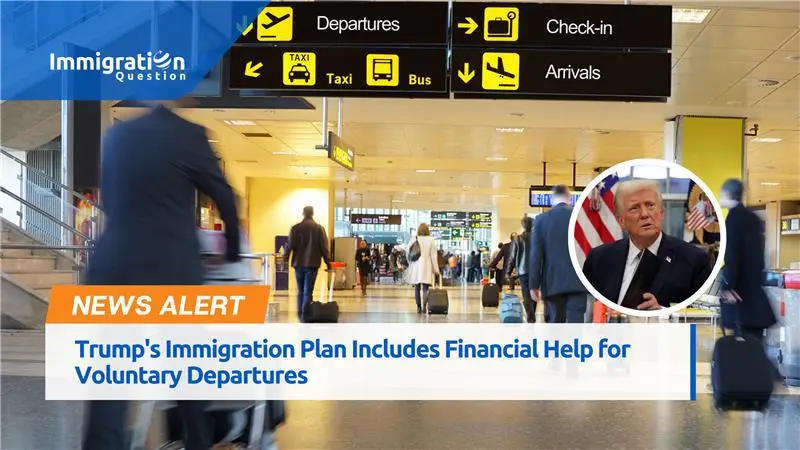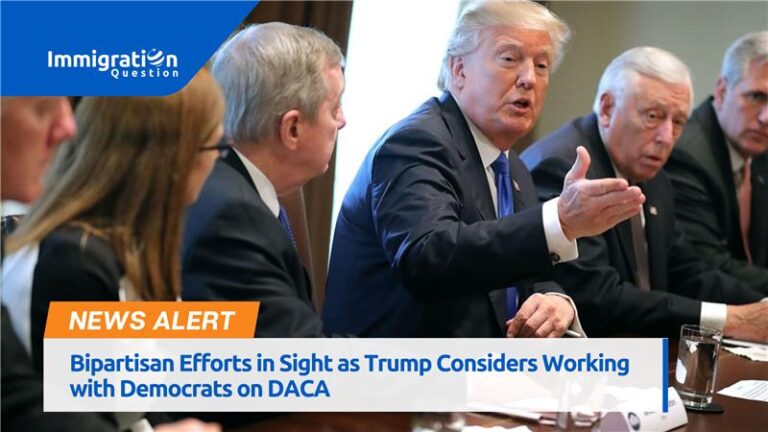Trump is proposing offering airline travel and stipends to illegal immigrants who leave the U.S. voluntarily. The plan aims to simplify deportation while keeping open the door for some to return through proper channels. This is a significant departure from Trump’s traditionally hardline immigration policy.
A Shift from Hard-line Rhetoric
President Donald Trump has introduced a controversial immigration proposal aimed at illegal aliens already present in the United States. In a recent interview, Trump announced that he would offer economic stipends and airfare to those who will voluntarily depart—contrary to his previous demands for large-scale deportations.
While the effort is softer, Trump’s proposal remains rooted in his overall immigration enforcement goals. While he emphasized deporting those with serious criminal histories, he also made it feasible to have a more lenient approach for those deemed not to be threatening.
The Mechanics of Self-Deportation
Details about the plan remain limited, but Trump stated that individuals who opt for voluntary departure would receive airfare and a financial stipend to support their journey. The program would provide a more “comfortable” exit route for undocumented immigrants, with the possibility of future legal re-entry for those considered “good” candidates.
The idea appears to revive past self-deportation strategies, this time with incentives attached. Trump suggested that the U.S. could later facilitate the return of specific individuals under a legal framework, though he did not offer a timeline or legislative pathway for such re-entry.
Mixed Signals and Media Consumption
During the interview, Trump was read a story about a long-time unauthorized immigrant—a father of U.S. citizen children—who reported that he agreed with Trump’s policies on crime and deportation. Trump responded positively, indicating that such people should not be targeted for deportation.
The former president seemed to use this story to delineate between immigrants who are contributing members of society and those who are criminals. This is at the root of his changing stance, which now accommodates case-by-case mercy.
Consideration of Labor Shortfalls
Trump also acknowledged the role of unregistered immigrants in the United States workforce. He highlighted staffing issues in sectors such as agriculture and hospitality and suggested that his administration would work to match employers with willing workers. However, he maintained that such workers should exit the country first and re-enter through legal channels.
Despite this concession, Trump failed to indicate how his government would grant or hasten legal work authorization to those who voluntarily depart the U.S.
Voluntary Exit as Policy Strategy
This new proposal likely reflects an attempt to blend enforcement with voluntary collaboration, with an alternative, less penal solution for illegal immigrants. It also reflects a calculated political move—marketing compassion with continued adherence to an underlying immigration control objective.
Whether or not this strategy takes hold with voters or policymakers remains to be seen, especially in a highly polarized political climate.
What’s Next?
Trump’s self-deportation proposal may reshape future conversations around immigration policy. With incentives tied to voluntary exit and a vague promise of future legal return, the initiative could signal a more nuanced enforcement strategy. However, without a clear implementation framework, questions remain about the feasibility and fairness of such a plan.
To stay updated and informed, watch our news section or drop your immigration questions on immigrationquestion.com and get responses from professional attorneys.





